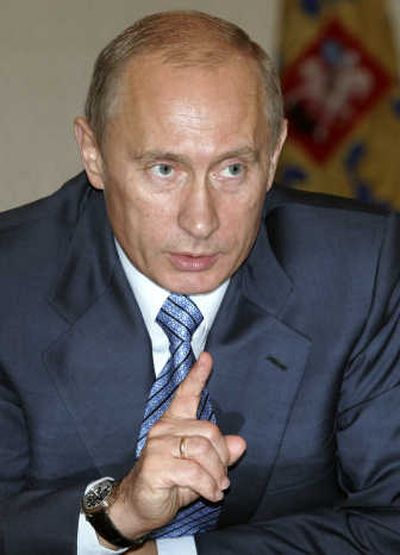Russia leaves arms program

MOSCOW – Russian President Vladimir Putin on Saturday suspended his country’s participation in a Cold War-era conventional arms-control pact looked upon as a cornerstone of European security, further deepening the rift between the Kremlin and Western governments.
By imposing a moratorium on its involvement in the Conventional Armed Forces in Europe Treaty, Russia no longer is bound by treaty-mandated limits on the size of its conventional weapons arsenal west of the Ural Mountains.
Russia’s suspension of the treaty also allows it to bar NATO countries from performing inspections at military sites in the European part of the country.
Driving the Kremlin’s decision, as well as much of Putin’s hostile rhetoric against the U.S. and NATO this year, has been President Bush’s push for a missile shield in Europe to protect the continent from rogue states such as Iran. The Kremlin views the idea as a direct threat to Russian security.
“This step has been prompted by exceptional circumstances related to the CFE’s essence affecting Russia’s security, and requiring urgent measures,” the Russian Foreign Ministry said.
NATO authorities previously warned Putin against carrying out the threat he made during his annual state of the nation address this spring to halt Russian participation in the treaty. On Saturday, NATO spokesman James Appathurai said the Western military alliance “regrets this decision by the Russian Federation. It is a step in the wrong direction.”
Signed in 1990 by NATO and Warsaw Pact nations, the treaty set sets limits on the deployment of tanks, attack helicopters and other military equipment from the Atlantic to the Ural Mountains. The treaty’s aim was to equalize the comparatively large advantage the Soviet Union’s conventional weapons arsenal had over European neighbors.